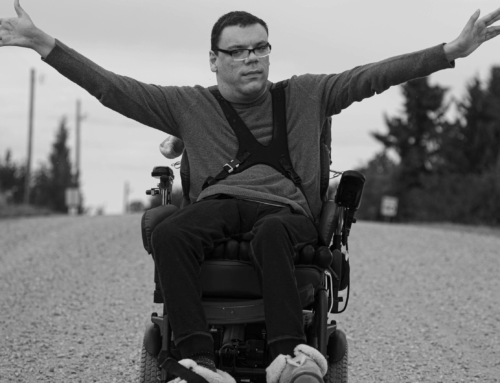
The movie Penguin Bloom, now available on Netflix, very much restored my faith in God’s good plan for my life, (and that of others with disabilities), my sense of empowerment to believe that I could accomplish the good works that he has prepared me to do, and my confidence that the media can show more than one side of a story, fostering empowerment of marginalized populations and empathy among the general population. Penguin Bloom tells the story of Sam Bloom and her family: Following a family vacation where Sam Bloom, wife, mother of three, nurse, and highly athletic individual suffers a spinal cord injury and is forced to renegotiate the ways that she fulfils her roles and responsibilities.
In the face of increasing popularity of Physician-Assisted Suicide around the world and Medical Assistance In Dying as it is termed in Canada, many media portrayals of people with disabilities in recent years (including movies like Me Before You and Breathe) seem to suggest that for people with disabilities, more than the general population, a positive quality of life is time-limited, and that rather than persevere in spite of aging and declining health as most people without disabilities do, those who have disabilities will want to end their lives prematurely and they should be permitted to do so.
The movie Penguin Bloom is highly refreshing because it opens a window into the physical and emotional pain that is often associated with adjustment to disability. It shows various ways that adjustment to disability and ongoing challenges can impact all members of the family. Most importantly it shows each member of the family journeying through their own experience of grief related to disability and eventually coming out the other side, not wishing to die but learning to spread their wings and fly with reinvigorated passion for life.
Although Penguin Bloom does not explicitly refer to the importance of religious faith or spirituality, the family is prone to trust rather than worry, and they demonstrate three key elements of faith: The presence of unconditional love (Rom. 8:38-39), being needed/valued by others (1 Cor. 12:12-14, 1 Peter 4:10, Ephesians 2:10), and being pushed to reach our full potential (1 Cor. 3:1-3, 12:30-31, Heb. 12:2).
God’s voice is not limited to Scripture. In my experience, God works through all kinds of people and circumstances to communicate, demonstrate, and reaffirm unconditional love, value and encouragement to grow because these are vital to human flourishing. Therefore, I invite you to consider the following questions:
- Where or from whom do you experience unconditional love?
- Where or to whom do you provide unconditional love?
- When or by whom do you feel needed?
- Who do you need?
- Who or what is pushing you to be more than you think you can be?
- Who might benefit from you pushing them to be more then they think they could be?
Sam Bloom experiences unconditional love through the presence of a magpie, an unlikely family pet, as well as the ongoing adoration of her husband and love of her family. Sam realizes that regardless of her physical challenges she has to find a way to continue being a mother because her children need her. She experiences a push to become more than she thinks she can be from the person who taught her to kayak after her accident. Sam’s growth in each of these domains of life represent increases in her own and her family’s potential, and she goes on to achieve incredible feats.
I am especially thankful for the timing of the release of Penguin Bloom since there is evidence to suggest the self-esteem and self-concepts of marginalized people can be profoundly impacted by portrayals of similar people in the media. I know this to be true from personal experience. I can remember the first time that I watched Joni Ereackson Tada’s autobiographical movie The Joni Story as well as The Other Side of the Mountain, when I was just a little girl. I also remember the first time that I saw a girl around my age who was in a wheelchair working as a host of children’s television programming on Saturday mornings. Their examples showed me that I could make a positive difference in this world.
In contrast, media portrayals of people with disabilities in recent years, such as in Me Before You and Breathe, were discouraging and disheartening to me due to the implication that regardless of resources and relationships (familial, friendly and romantic) physical disability makes one’s life harder than anyone else’s. (I don’t think that’s true). Prior to watching Penguin Bloom I was fed up with the media as well as angry with much of the disability community for allowing people with physical disabilities to be portrayed in such a way. These views don’t represent me or the people that I am friends with who have disabilities. They don’t make a lot of sense to me because many societies have advanced in terms of accessibility, support services, and disability rights which promote full and equal participation in most, if not all, areas of society.
I feel that I lead a very fulfilling life regardless of my physical challenges and support needs. Penguin Bloom reminded me that I am not alone in this. Should my quality of life diminish over time, I feel that it is my responsibility to live out the entire life that God calls me to and promises to help me through: if you or your family are suffering from disability related pain or grief; if you feel like you would rather die than continue living with disability and Medical Assistance in Dying offers you the opportunity to die, that does not mean that you should. May the movie Penguin Bloom encourage you to go beyond your grief and pain, and grow beyond what you think you can do.



